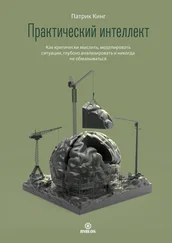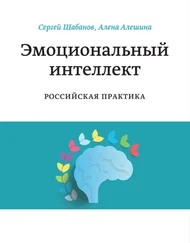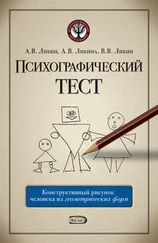Cohen, S., & Wills, T. A. (1985). Stress, social support, and the buffering hypothesis. Psychological Bulletin, 98, 310–357.
Cole, D. A., Martin, J. M., Peeke, L. A., Seroczynski, A. D. and Fier, J. (1999). Childrens Over and Underestimation of Academic Competence: A Longitudinal Study of Gender Differences, Depression and Anxiety, Child Development 70, 459–73.
Costanza, R. S., Derlega, V. J., & Winstead, B. A. (1988). Positive and negative forms of social support: Effects of conversational topics on coping with stress among same-sex friends. Journal of Experimental Social Psychology, 24, 182–193.
Cronkite, R. C., & Moos, R. H. (1984). The role of predisposing and moderating factors in the stress-illness relationship. Journal of Health and Social Behavior, 25, 372–393.
Coyne, J. C., Aldwin, C., & Lazarus, R. S. (1981). Depression and coping in stressful episodes. Journal of Abnormal Psychology, 90, 439–447.
Eccles, J. S., Vida, M. N., & Barder, B. (2004). The Relation of Early Adolescents College Plans and Both Academic Ability and Task-Value Beliefs to Subsequent College Enrollment. Journal of Early Adolescence, Vol. 24 No. 1, 63–77.
Eccles, J. S., Wigfield, A., & Schiefele, U. (1998). Motivation to succeed. In W. Damon & N. Eisenberg (Eds.), Handbook of child development, 5th ed., New York: John Wiley, Vol. 3, 1017–1095.
Facione, P. A., Facione, N. C. (1992). The California critical thinking disposition inventory. Millbrae: California Academic Press.
Fenzel, L. M. (2000). Prospective Study of Changes in Global Self-Worth and Strain During the Transition to Middle School. The effects of role strains and perceived competence on self-esteem and school performance of sixth graders in middle school. Journal of Early Adolescence, February, Vol. 20, No. 1, 93–116.
Folkman, S., Lazarus, R. S., Dunkel-Schetter, C., DeLongis, A., & Gruen, R. J. (1986). Dynamics of a stressful encounter: Cognitive appraisal, coping, and encounter outcomes. Journal of Personality and Social Psychology, 50, 992–1003.
Folkman, S., & Lazarus, R. S. (1985). If it changes it must be a process: A study of emotion and coping during three stages of a college examination. Journal of Personality and Social Psychology, 48, 150–170.
Folkman, S., & Lazarus, R. S. (1980). An analysis of coping in a middle-aged community sample. Journal of Health and Social Behavior, 21, 219–239.
Freud, A. (1937). The ego and the mechanisms of defense. London: Hogarth Press.
Freud, S. (1923,1960). The ego and the id. New York: Norton, 1923, 1960.
Freud, S. (1949). Outline of psycho analysis. New York: Norton.
Gardner, H. (1999). Intelligence Reframed. Multiple intelligences for the 21st century. New York: Basic Books.
Gardner, H. (1983). Frames of Mind. New York: Basic Books Inc.
Gardner, H., & Hatch, T. (1989). Multiple intelligences go to school: Educational implications of the theory of multiple intelligences. Educational Researcher, 18(8), 4–9.
Garret, K., & Wulf, K. (1978). The relationship of a measure of critical thinking ability to personality variables and to indicators of academic achievement. Educational and Psychological Measurement, 38, 1181–1187.
Giancarlo, C. A., Blohm, S. W., Urdan, T. (2004). Assessing secondary students disposition toward critical thinking: development of the California measure of mental motivation. Educational and Psychological Measurement, Vol. 64, No. 2, 347–364.
Giancarlo, C. A., Facione, P. A. (2000). The California Measure of Mental Motivation. Millbrae: California Academic Press.
Giancarlo, C. A., Facione, P. A., & Blohm, S. W. (2000). The California Measure of Mental Motivation (CM3) Short Form. Millbrae: California Academic Press.
Goody, E. N. (1995). Social intelligence and interaction. Cambridge: University Press.
Haan, N. (1965). Coping and defense mechanisms related to personality inventories. Journal of Consulting Psychology, 29, 373–378.
Haan, N. (1969). A tripartite model of ego functioning, values and clinical and research applications. Journal of Nervous and Mental Disease, 148, 14–30.
Haan, N. (1977). Coping and defending. Proñess of self-environment organization. New York-San Francisco-London: Academic Press.
Halpern, D. F. (1998). Teaching critical thinking for transfer across domains: Dispositions, skills, structure training, and metacognitive monitoring. American Psychologist, 53(4), 449–455.
Harter, S. (1993). Causes and consequences of low self-esteem in children and adolescents. In R. F. Baumeister (Ed.), Self-esteem: The puzzle of low self-regard. New York: Plenum, 87–116.
Hartmann, H. (1958). Ego Psychology and the Problem of Adaptation. New York: International Universities Press.
Hedlund, J., & Sternberg, R. J. (2000). Too many intelligences? Integrating social, emotional, and practical intelligence. In R. Bar-On & J. D. A. Parker (Eds.), The handbook of emotional intelligence. San Francisco: Jossey-Bass, 136–167.
Kagan, J. (1966). Reflection-impulsivity: The generality and dynamics of conceptual tempo. J. Abnormal Psychology, 71, 123–129.
Kelley, H. H. (1992). Common-sense psychology and scientific psychology.
Krantz, D. S., Glass, D. C., & Snyder, M. L. (1974). Helplessness, stress level, and the coronary-prone behavior pattern. Journal of Experimental Social Psychology, 10, 284–300.
Krohne, H. W.; Schmukle, S. C.; Burns, L. R.; Egloff, B.; Spielberger, Ch. D. (2001) The measurement of coping in achievement situations: An international comparison. Personality & Individual Differences. Vol 30(7), 5, 1225–1243.
Kroeberg, T. C. (1963). The coping functions of the ego mechanisms.
In White, R. (Ed). The study of lives. New York: Atherton. Lazarus, R. S. (1991). Emotion and adaptation. New York: Oxford UP.
Lazarus, R. S. (1969). Patterns of adjustment and human effectiveness. New York: McGraw-Hill.
Lazarus, R. S. (1966). Psychological stress and the coping process. New York: McGraw-Hill.
Lazarus, R. S., & Folkman, S. (1984). Stress, appraisal, and coping. New York: Springer.
Lehr U., Thomae H. (1993). Coping and Aging. In: Van Heck, G., Bonaiuto, P. (Eds). Personality Psychology in Europe. Vol. 4., 365–387.
Legg, S. & Algina, J. (Eds.). (1990) Cognitive assessment of language and math outcomes: Advances in discourse processes. Vol. 46. Stamford, CT: Ablex.
Libin, A. (2007). Differential Psychology: On the Crossroad of American, Russian, and European traditions. Handbook. 5th Ed. Moscow: Eksmo Educational
Libin, A. (1995). The Formal-Dynamic Model of Personality. Paper presented on the YII-th European Congress of EPA. Madrid.
Libin, A. (2001). Virtual reality as a complex interactive system: A multidimensional model of a person – artificial partner co-relations. In: H. Thwaites, & L. Addison (Eds.), Proceedings of the Seventh International Conference on Virtual Systems and Multimedia. Enhanced realities: Augmented and unplugged, pp. 652–657. Los Alamitos, CA: IEEE Computer Society.
Libin, A., Cohen-Mansfield, J. (2001). Matching interventions for the individualized treatment in dementia. Poster presented at the GSA 54th annual scientific meeting. November 15–18. Chicago
Libin, A., Libin, E., Ojika, T., Nishimoto, Y., Takeuchi, T., Matsuda, Y., Takahashi, Y. (2002). On Person – Robot Interactions: Cat NeCoRo Communicating In Two Cultures (Phase 1. USA – Japanese study). Proceedings of the 8th International Conference on Virtual Systems and Multimedia, Creative Digital Culture, VSMM Society, Seoul, pp. 899–905.
Читать дальше
Конец ознакомительного отрывка
Купить книгу












